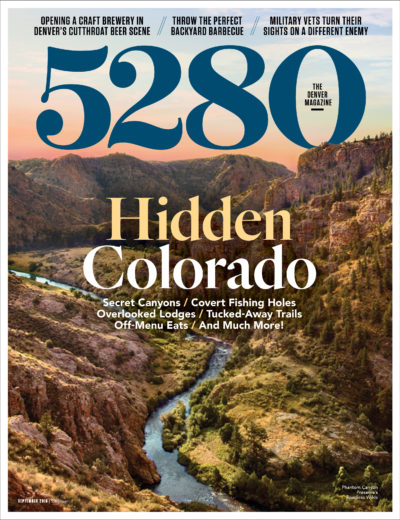The Local newsletter is your free, daily guide to life in Colorado. For locals, by locals. Sign up today!
This past October, Gallup shocked pundits by announcing that it wouldn’t conduct head-to-head polling for the presidential race. That’s like REI deciding not to carry tents. Yet the decision shouldn’t have been that surprising. As more Americans get rid of landlines (how pollsters traditionally reached voters), the polling industry is struggling to accurately survey the country’s views—at a time when it’d be particularly useful to have a hunch about who the next commander in chief will be.
Aris Persidis thinks he may have the solution. A co-founder of five successful startups, the Arvada entrepreneur and his wife, Rhonda, entered the digital polling scene with Gridiron Moe, a football app that turns real-time play-calling into a competition. Modeling their new app after that endeavor, in March the pair debuted Voter Moe, which allows American iPhone users (they hope to launch on Android soon) to “vote” for candidates or weigh in on issues such as immigration. Users can give a thumbs-up, thumbs-down, or undecided response twice per day on each topic or candidate, and anyone who downloads the app—whether you provide your views or not—has access to this real-time representation of opinions across the country as they evolve.
“It’s as if you have a voting booth 24/7 between now and November.” —Aris Persidis, co-founder of Voter Moe
As of early July, Voter Moe had tallied nearly 770,000 votes. The app includes demographic data, so you can see, for example, the percentage of female users who approve of Hillary Clinton or which states have the greatest number of users planning to vote for the Donald. To be fair, you’re only hearing from the third of Americans who own iPhones—and only those who have chosen to download Voter Moe. Yet David Flaherty, CEO of Colorado public-opinion research firm Magellan Strategies, says this kind of platform could provide a useful snapshot of voters 44 and younger. “That’s where we struggle,” he says.
The question is how to use the statistics Voter Moe collects. Persidis’ ultimate goal is to get the candidates on board (to pose questions to the app’s users) and the TV networks involved (to use the data during debates). He’s also in talks with groups ranging from tech companies to collegiate political clubs, which plan to use the information as a way to pinpoint the issues voters care about.
Once the presidential election is over, Voter Moe will likely focus on smaller races and expand to elections in other countries, such as the United Kingdom. We bet David Cameron sure would have appreciated such a tool this past summer.









